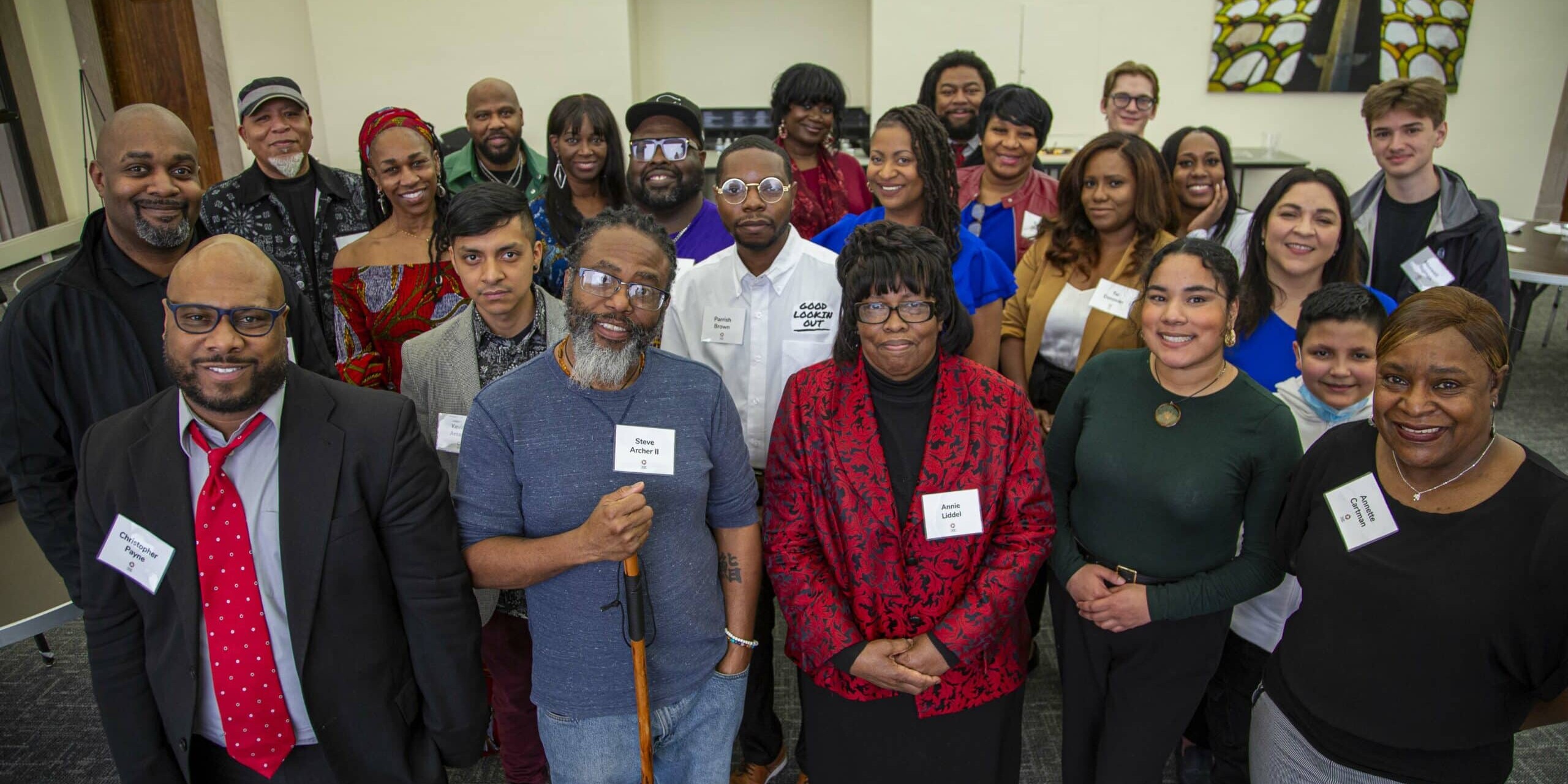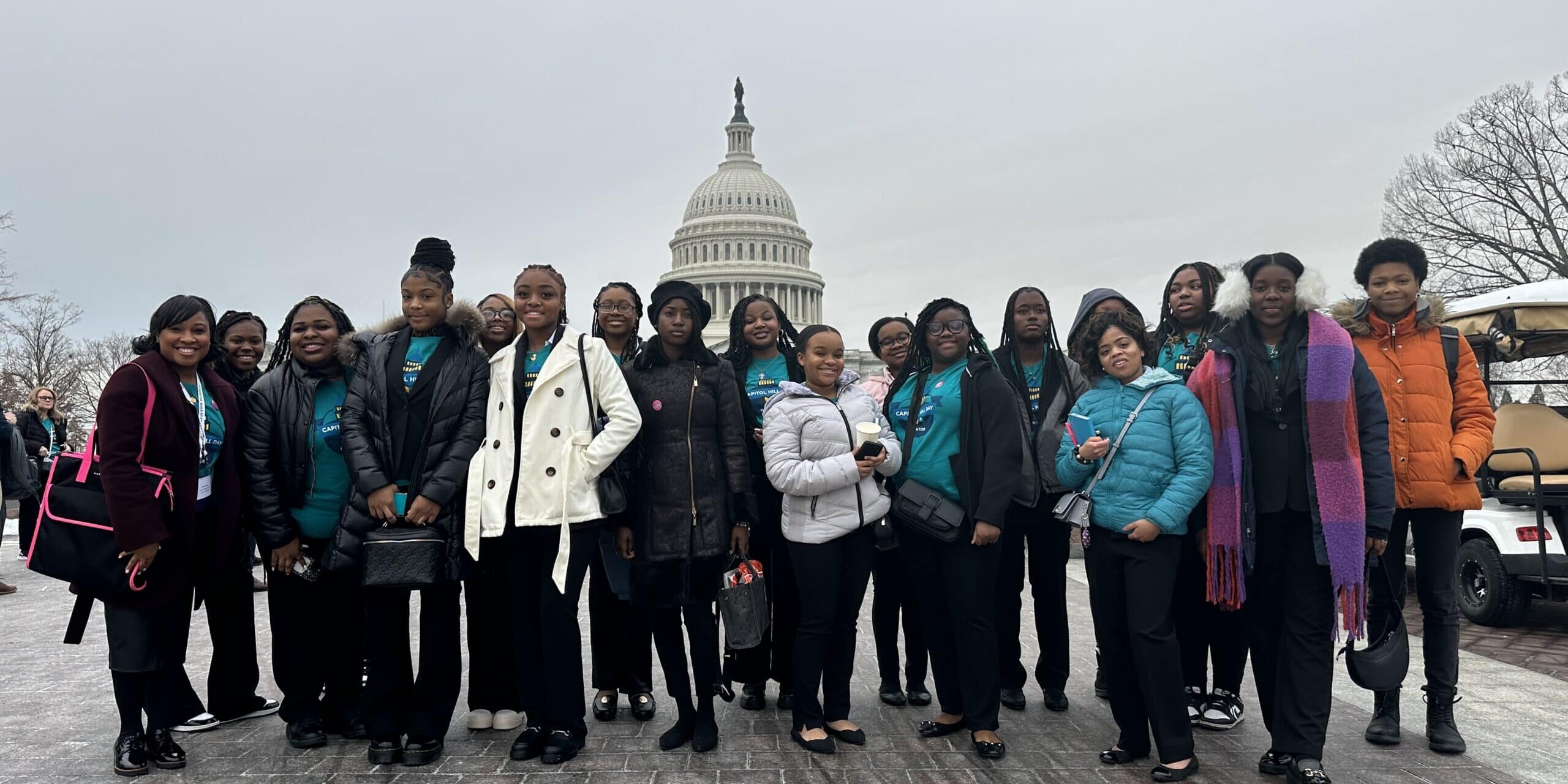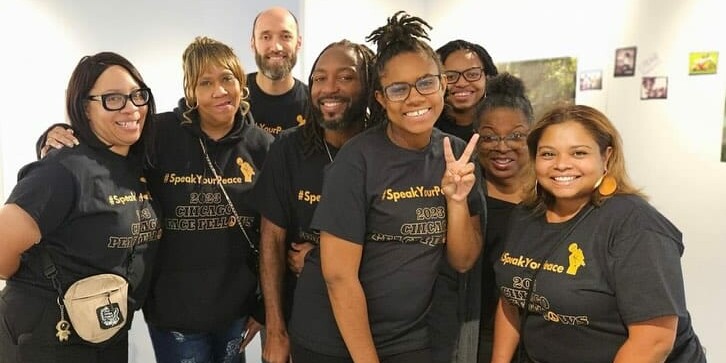
The Chicago Peace Fellows recently met with a unique group of activists who are teaching non-violence techniques to gang members in the city’s toughest neighborhoods.
“My job is to stop the violence,” said Kenya Hardy, street outreach worker with the Institute for Nonviolence Chicago. “I do whatever I have to do, like a cousin, like a big brother they can look up to.”

On some days, Kenya accompanies the young men he works with to court, but on others, he may help them get stable housing or even mediate a dispute with a girlfriend.
[quote]“I’m here to show them love and show them that violence ain’t the key.”– Kenya Hardy[/quote]
The Peace Fellows met the staff of Institute for Nonviolence Chicago in their office in the Austin neighborhood on the far West Side on May 16, engaging in an intense conversation about which strategies are actually effective. Founded just three years old, teh Institute for Nonviolence Chicago operates in 3 of the city’s most violent neighborhoods, Austin, West Garfield Park and Back of the Yards, using an approach that takes into account the high levels of trauma in these communities and aims for restorative justice, rehabilitation over punishment and vengeance. Eighty percent of Nonviolence Chicago’s 20-person team is hired from these three neighborhoods.

Each of the neighborhoods comes with distinct challenges, according to Tara Dabney, the group’s director of development and communications. Austin receives the greatest number of people released from incarceration – called ‘returning citizens’ – while Garfield Park includes a major interstate highway, which attracts open air sales of illegal drugs and prostitution, and Back of the Yards has a conflict between different gangs that has persisted for several generations. In Austin and Back of the Yards, Nonviolence Chicago has been able to negotiate truces that have greatly reduced the number of homicides and other acts of violence, building relationships with open-minded police commanders and officers. These neighborhoods and six others account for one-half of the homicides in Chicago, and the ultimate goal is to convince elected leaders to use government money for anti-violence efforts.

[quote]“In every large city where they have seen a major reduction, they have seen a large investment of public dollars” Tara Dabney[/quote]
Staff member Artemmeo Williams spent nine years in prison and found there were few services available for returning citizens when he emerged. Williams relied on his family “to reintegrate into society and not go back into prison.” In his work for Nonviolence Chicago, he provides the full spectrum of support to other young men coming back to the Austin neighborhood, even interacting with the Illinois Department of Corrections before their release.

“Whatever they need to sustain life, we’re there for them,” Artemmeo explained.
Asked by Peace Fellow Sokoni Karanja whether he might provide training to a South Side community, Artemmeo responded with enthusiasm.
[quote]“We’ll go to Mars if we have to.” Artemmeo Williams[/quote]
In her work in the Back of the Yards, staff member Elena Casada provides assistance to survivors of violence, who do receive limited government assistance but lose support after several weeks. Elena accompanies families to funeral homes, guides them through compensation applications, and finds counseling as well as support groups. She works with the understanding that her relationship with these families will be long-term, as the waiting lists for trauma-informed counselors are currently one year long.
“Whatever it takes to help them find a new normal, we do,” Elena said.
Peace Fellow Frank Latin, founder and executive director of Westside Media Project, asked the staff of Nonviolence Chicago about the effects of criminal justice policy on communities, and how to stop criminal activity.

Kenya Hardy answered that current policy makes it more likely that juvenile gang members will commit gun crimes, while many gang members actually prefer prison, because they receive stable housing and food as well as a modicum of security.
“The system is not working,” Kenya summed up. “Young men get comfortable and safe in prison. In jails, there’s a structure.”
Artemmeo added that in many cases, the young men involved in gangs wanted to get away from criminal activity, but had no resources to leave the gang structure.
“Our community is depleted of resources so we can’t do but run to the corner for a job,” Artemmeo said. “They’re not living. They’re surviving.”
Peace Fellow Maria Velazquez from the Telpochcalli Community Education Project noted that organizers at Nonviolence Chicago needed to be creative as well as flexible to respond to multiple needs and changing situations.

Peace Fellow Johnny Payton, who has extensive experience doing anti-violence work himself in the Cabrini Green public housing development and other communities, underscored the importance of building alliances across communities.
[quote]“We’ve just got to be here ‘hood to ‘hood to help each other.” — Johnny Payton[/quote]
Peace Fellow Lisa Daniels lost her own son to gun violence seven years ago in an incident in which he was both a perpetrator and a victim, and currently serves on the Illinois Prisoner Review Board, where she is able to provide guidance and advice to try and stop other young men from killing or being killed.

[quote]“There has to be a place where we connect on a human level. They ain’t trying to shoot. They ain’t trying to kill. They want love.” — Lisa Daniels[/quote]
For both the Peace Fellows and the outreach staff at Nonviolence Chicago, anti-violence work is highly personal. Case Manager Delano Macintyre added that he has a record for possession of a firearm himself and that his own son currently receives services from Nonviolence Chicago.
“I’m happy to see kids doing good,” Delano said. “If we don’t go to work, my son is in trouble.”



